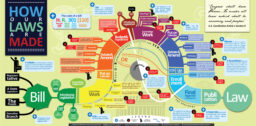 In an email sent to PNRC on Dec. 3, Kansas Press Association Executive Director Emily Bradbury reported the following story:
In an email sent to PNRC on Dec. 3, Kansas Press Association Executive Director Emily Bradbury reported the following story:
“We have a kiddo in Kansas who started a competing online newspaper (The Hutchinson Tribune) against a Gannett newspaper (The Hutchinson News).
He is 17 years old.
Tonight, for the second time, he went before the Hutchinson City Council to argue to keep printed public notices in the Hutchinson News — his competitor. He won the fight for Gannett. Amazing.
Some local governments in Oregon may be misinterpreting new law
 Some local government units in Oregon are publishing notices on local news websites in lieu of official newspapers, according to announcements on those sites and official statements made by some of the governments.
Some local government units in Oregon are publishing notices on local news websites in lieu of official newspapers, according to announcements on those sites and official statements made by some of the governments.
The Philomath News, Salem Reporter and YachatsNews have reported that local governments in the counties in which they publish are running notices on their sites. Most, if not all, of those notices are being published exclusively on those websites and are not also being published in a local newspaper.
N.Y. paper sues county over pulled notices
 A newspaper based in Delaware County, N.Y. sued county officials in December, claiming they unlawfully canceled its public notice contract in retaliation for unfavorable news coverage. The Reporter, a weekly newspaper based in the county seat of Delhi, also alleges the county violated the First and Fourteenth Amendments by ordering its employees to refer all questions from the paper to the county attorney’s office.
A newspaper based in Delaware County, N.Y. sued county officials in December, claiming they unlawfully canceled its public notice contract in retaliation for unfavorable news coverage. The Reporter, a weekly newspaper based in the county seat of Delhi, also alleges the county violated the First and Fourteenth Amendments by ordering its employees to refer all questions from the paper to the county attorney’s office.
The lawsuit was filed in federal court by Decker Advertising, the agency that owns The Reporter.
Move to government websites picks up steam in Ohio
 Townships in Ohio are seeking the same power already granted to municipalities in the state: The power to publish notice via the Internet instead of a local newspaper.
Townships in Ohio are seeking the same power already granted to municipalities in the state: The power to publish notice via the Internet instead of a local newspaper.
Introduced late last week, a new bill, HB-315, would expand townships’ public notice options beyond print, allowing them to post notice on their own websites and social media accounts, or on the Ohio News Media Association’s statewide public notice site. It adopts the same language as HB-33, legislation enacted this summer authorizing cities and villages — “municipalities” under Ohio law — to publish notice online. HB-315 duplicates HB-33’s statewide website option even though ONMA announced after the latter bill passed that without major upgrades the website isn’t capable of accepting ads directly from customers.
Some cities opt out of newspaper notice in Kansas
 Kansas Attorney General Kris Kobach recently issued a legal opinion declaring that some cities may publish notices on their own websites despite a state law requiring them to be published in local newspapers.
Kansas Attorney General Kris Kobach recently issued a legal opinion declaring that some cities may publish notices on their own websites despite a state law requiring them to be published in local newspapers.
“Home-rule provisions of the Kansas Constitution … allows cities to exempt themselves from nonuniform acts of the Legislature,” Kobach wrote. “We conclude that a second-class city may exempt itself by charter ordinance. And, once having done so may then choose to publish official city business on its own webpage.”
Municipalities with populations between 2,000 and 15,000 people are considered “cities of the second class” in Kansas.
AG supports newspaper notice in Wyoming lawsuit
 Two municipalities in Wyoming passed nearly identical ordinances in 2021 exempting themselves from state statutes mandating the publication of various notices in their local paper of record. A lawsuit subsequently filed by that paper — Lee Enterprise’s Casper Star-Tribune — seeks to compel the cities of Mills and Bar Nunn to publish those notices within its pages.
Two municipalities in Wyoming passed nearly identical ordinances in 2021 exempting themselves from state statutes mandating the publication of various notices in their local paper of record. A lawsuit subsequently filed by that paper — Lee Enterprise’s Casper Star-Tribune — seeks to compel the cities of Mills and Bar Nunn to publish those notices within its pages.
The Star-Tribune is the official newspaper of Natrona County. Mills and Bar Nunn are small but growing communities within the county.
Last month, the state of Wyoming weighed in on the side of the Star-Tribune. The attorney general’s office filed a brief in the case, arguing the state’s public notice laws are valid and must be followed by both local governments.
What happens after the bill passes?
 For over 20 years, newspapers and their state press associations turned back every bill that authorized government units to issue public notice via their own websites instead of local newspapers. That winning streak ended last year when the Florida legislature gave state agencies and local governments the option to post notices on county websites.
For over 20 years, newspapers and their state press associations turned back every bill that authorized government units to issue public notice via their own websites instead of local newspapers. That winning streak ended last year when the Florida legislature gave state agencies and local governments the option to post notices on county websites.
The new law, which took effect on Jan. 1, has one upside. It set in motion a vast experiment that will tell us what local governments do when given this choice. Five weeks into the new year an answer is beginning to emerge: It depends primarily on the motivations of local elected officials and the actions local newspapers take in response to the challenge.
Colorado paper prevails in public notice case
 The Wet Mountain Tribune in December settled its slam-dunk federal lawsuit against the Custer County Board of Commissioner (BOCC) and will once again run the county’s public notices. The lawsuit claimed the BOCC violated the Tribune’s First Amendment rights by retaliating against it by awarding the county’s public notice contract to another local newspaper that is openly partisan.
The Wet Mountain Tribune in December settled its slam-dunk federal lawsuit against the Custer County Board of Commissioner (BOCC) and will once again run the county’s public notices. The lawsuit claimed the BOCC violated the Tribune’s First Amendment rights by retaliating against it by awarding the county’s public notice contract to another local newspaper that is openly partisan.
In addition to making the Tribune the county’s official newspaper again for the next four years, Custer County also agreed to pay the Tribune $50,000. That’s about three times as much as the county spends annually on its notices, according to Tribune owner Jordan Hedberg’s (photo above) estimate.
Scope of Florida’s new public notice law questioned
 As we previously reported, the new Florida public notice statute set to take affect on Jan. 1 is beset with ambiguity. In general, the statute is designed to give local governments the option to publish notices on their county website in lieu of newspapers. But as the dust has settled from the battle over House Bill 7049, fears about the immediate damage it will wreak on public notice in the state have diminished.
As we previously reported, the new Florida public notice statute set to take affect on Jan. 1 is beset with ambiguity. In general, the statute is designed to give local governments the option to publish notices on their county website in lieu of newspapers. But as the dust has settled from the battle over House Bill 7049, fears about the immediate damage it will wreak on public notice in the state have diminished.
How not to defend public notice
 Custer County isn’t the only jurisdiction in Colorado where controversy has erupted over the publication of local notices. Greenwood Village and Pitkin County have had their own recent dust-ups over the designation of their local papers of record. The Pitkin County story is particularly instructive for the wrong reasons.
Custer County isn’t the only jurisdiction in Colorado where controversy has erupted over the publication of local notices. Greenwood Village and Pitkin County have had their own recent dust-ups over the designation of their local papers of record. The Pitkin County story is particularly instructive for the wrong reasons.
In late July, Pitkin’s Board of County Commissioners (BOCC) adopted the Aspen Daily News as its new official newspaper, displacing the Aspen Times, a daily that had served as the ski town’s paper of record since 1993. The Times had changed ownership at the beginning of the year, igniting several local controversies that apparently motivated the commissioners to make the change.
